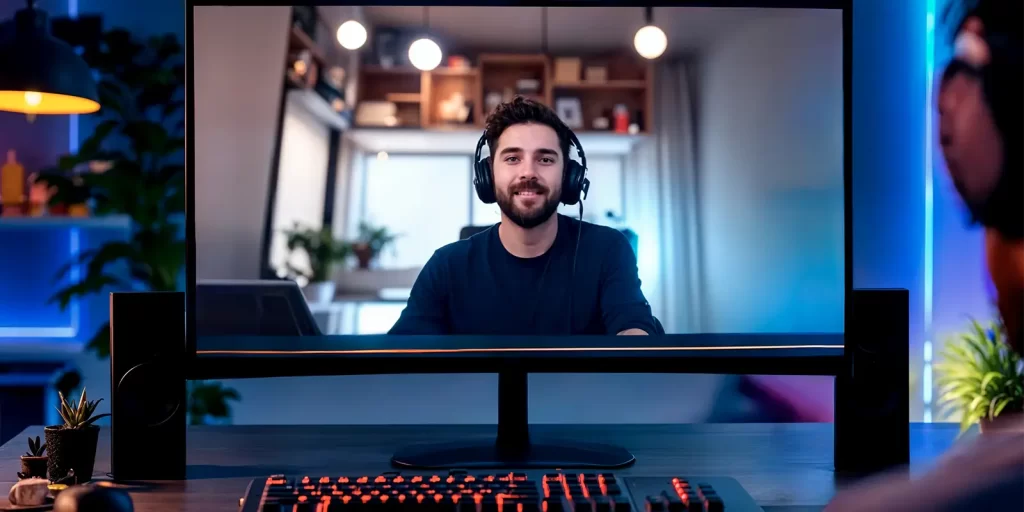Over the last decade, influencers have dominated the digital landscape. They became the voice of brands, the bridge between products and consumers, and an aspirational reference point for millions of followers. However, in recent years we have begun to notice a silent but significant change: many of these creators have been disappearing from the radar, losing relevance, while the owners of the companies themselves are beginning to take center stage in the narrative of their businesses.
Several factors are at play in this change, but one of the most decisive has been the advancement of artificial intelligence (AI). And no, it’s not just about virtual influencers created by algorithms—which are gaining ground—but how AI has changed consumer expectations, who now value authenticity and transparency more than simple aspirational marketing.
The rise and fall of traditional influencers
For years, the formula was clear: a brand would hire an influencer with thousands or millions of followers, who would showcase a product on their social media, and the message would spread exponentially. But like all trends, it wore thin. Overexposure, a lack of credibility in many paid collaborations, and the saturation of sponsored messages generated skepticism among the audience.
Added to this was the arrival of new technologies. With artificial intelligence, companies no longer need to rely on intermediaries to create engaging content. Today, software can produce videos in seconds, generate realistic images, or write persuasive texts without the need to hire someone from outside the company. And while AI does not replace human creativity, it has transformed the way digital narratives are constructed.
Back to basics: the voice of the founders

Amid this landscape, an interesting trend has emerged: business owners themselves have become the new “influencers.” And this is not an improvised strategy, but a direct response to what consumers are looking for: authenticity and real connection.
The founder of a brand has something that no influencer can replicate: their personal story. By sharing why they made certain decisions, what challenges they faced, and what values inspire them, they humanize the product and connect emotionally with their audience. Instead of seeing an ad disguised as a recommendation, the audience hears a genuine story, full of passion and meaning.
A clear example is small businesses that grow on TikTok or Instagram not because they hire big celebrities, but because their own creators appear on camera showing their daily lives, explaining their processes, and responding to their customers with warmth. That transparency builds trust, something that even the best advertising contract with an influencer cannot guarantee.
Virtual influencers: threat or complement?

The paradox is that, while many human influencers are losing relevance, virtual influencers have emerged: digital characters created with artificial intelligence, who have thousands of followers on Instagram, YouTube, or TikTok. These figures do not sleep, do not get tired, do not generate personal controversies, and can be active 24 hours a day.
Some brands have bet heavily on them because they offer total control over the narrative. However, they also face a challenge: how to build trust with an audience that knows that behind that smile there is no real person? That’s where the voice of the founder or owner comes back into play. In the face of the artificial, the human is valued more.
Humanizing the brand: the new winning strategy
The replacement of influencers by founders is no coincidence, but part of a larger movement: the quest to humanize brands. In a world saturated with information, consumers no longer want just products; they want stories, values, and transparency.
When a brand owner appears in a video explaining why they decided to use certain ingredients, how the idea for their company came about, or what their customer community means to them, they convey closeness and credibility. They become a trusted storyteller, someone with whom the audience can identify.
Furthermore, this change democratizes marketing. It is no longer necessary to invest millions in collaborations with influencers; all you need is a cell phone, authenticity, and consistency. Artificial intelligence tools facilitate the process of editing and creating content, but the core message comes from the heart of the business: its founder.
What does this tell us about the future of digital marketing?
Everything indicates that we are entering a new era. Influencers will not disappear completely—there will always be those who manage to connect genuinely with their audience—but their role is no longer as indispensable as it once was. Now, the spotlight is on the real stories of those who create, take risks, and dream behind each brand.
Far from being just a threat, artificial intelligence is becoming a powerful tool that amplifies those authentic voices. It allows founders to produce quality content and disseminate it efficiently, without relying on third parties.
In the end, the big winner is the consumer, who receives more honest, relatable, and human messages in a world where the artificial and the manufactured abound.
Conclusion
The golden age of influencers seems to be giving way to a new form of communication, where brand owners become the main ambassadors for their products. Artificial intelligence is accelerating this transformation, but it is also reminding us of something fundamental: what we value most as consumers is not digital perfection, but human authenticity.
Brands that understand this and dare to showcase the voice of their founders will not only survive, but will stand out in an increasingly competitive market. Because at the end of the day, behind every great company there is a story that deserves to be told.








































Leave a Reply